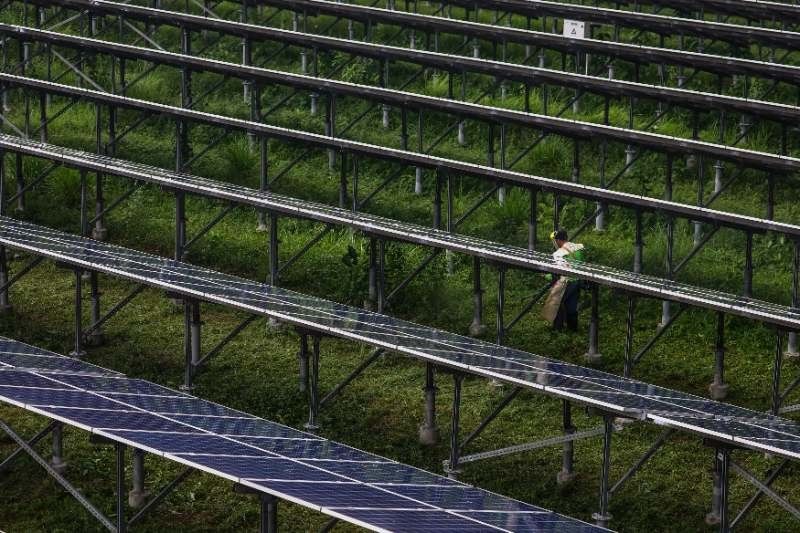Philippines can ditch coal, gas for renewables by 2050 — analysis

MANILA, Philippines — It is “entirely feasible” for the Philippines to end its reliance on coal and gas in favor of renewable energy sources by 2050, which can reduce electricity costs and create around one million jobs, an analysis suggested.
According to a report by Berlin-based global science policy institute Climate Analytics released Wednesday, the Philippines should end its coal habit by 2035, and almost entirely phase out gas-fired generation by 2040 to attain a 1.5 degrees Celsius compatible emissions pathway.
The Intergovernmental Panel on Climate Change, a United Nations-backed body of scientists, says that greenhouse gas emissions must peak before 2025 and reach net zero in the early 2050s to limit global warming to 1.5 degrees Celsius with no or limited overshoot. Achieving this target requires an accelerated global energy transition.
The power generation in the Philippines heavily relies on fossil fuels, with the country generating 60% of its electricity from coal, a significant contributor to carbon dioxide emissions. The share of coal increased significantly from 45% in 2015.
The Philippines in 2020 declared a moratorium on proposals to build new coal-fired plants.
Meanwhile, the share of gas dropped to 16% in 2022 from 23% in 2015. However, the Philippine Energy Plan indicates that the share of gas in power generation is set to increase to 27 to 40% by 2040 through gas imports.
The report stressed the need for a well-defined plan for an expedited coal phase-out and renewable energy expansion to 99% coverage by 2050.
“Such a transition is not only essential for the country's commitment to meeting international emissions reduction targets under the Paris Agreement but also for ensuring energy security, affordability, and environmental well-being,” the Climate Analytics report read.
Scaling up renewables
According to the analysis, the country’s potential for renewables was estimated at around 1,200 gigawatts, including solar rooftop, open-field solar, and onshore and offshore wind.
Climate Analytics suggested that an additional 152 terawatt-hours will be required by 2050 to meet future electricity demand and phase out fossil fuels. The Department of Energy targets to increase the share of renewable energy in the country’s generation mix to 30% by 2030, to 50% by 2040, and to more than 50% by 2050.
“We find that with the right international funding and policies in place, the Philippines could transition its power sector to near-100% renewable energy,” Climate Analytics analyst Nandini Das said.
The report recommended that the government should direct investments into renewables, streamline processes among various institutions to increase awareness of procedures and policies among public and private sectors, and strengthen the ability of clean energy sources to withstand climate impacts.
Beneficial outcomes
The Climate Analytics report also pointed out that weaning off fossil fuels and shifting to renewables like open-field and rooftop solar will reduce electricity cost and enable the country to attain greater self-sufficiency.
Findings of the analysis also showed that around one million jobs will be created in the Philippines between 2020 and 2050 by replacing coal and gas with renewables.
“As a country that is among the most vulnerable in the world to the climate crisis, the 1.5 C goal is a survival threshold that is simply not optional for the Philippines,” said Kenneth Quesada, data research analyst of sustainability think-tank Center for Energy, Ecology, and Development. CEED commissioned the analysis.
“There really is no reason for our government or energy players alike to argue that we need massive new capacities of gas and other fossil fuels in advancing our energy transition when climate-aligned pathways of tapping our abundant renewable energy potential are also the ones that make the most economic sense,” he added.
- Latest




























